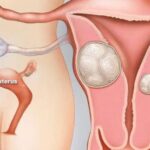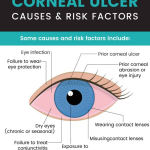The pancreas, positioned behind the stomach, serves a vital role in digestion by secreting enzymes and hormones. Enzymes aid in breaking down carbohydrates, fats, and non-carbohydrates in the small intestine, while hormones like insulin and glucagon regulate blood glucose levels, providing energy to cells. Pancreatic diseases encompass a spectrum of complex conditions that can adversely impact various organs, including the kidneys and lungs, potentially leading to fatal outcomes.
Types of Pancreatic Diseases
Acute Pancreatitis
- Causes: Gallstones, alcoholism, high blood calcium, diabetes, injury, drug side effects, obesity, surgery, infection, birth defects, ulcers, or genetics.
- Symptoms: Severe abdominal pain, vomiting, loss of consciousness, fever, elevated heart rate.
- Diagnosis: Blood amylase levels, ultrasound, CT scan, ERCP.
- Treatment: Hospitalization, saline and pain medication, ICU admission if complicated, surgery for abscess or cysts caused by inflammation.
Chronic Pancreatitis
- Symptoms: Frequent abdominal pain, indigestion, weight loss, foamy stools, diabetes.
- Diagnosis: Blood tests, ultrasound, CT scan, ERCP.
- Treatment: Avoid fatty foods, pancreatic enzyme supplementation.
Pancreatic Tumor
- Symptoms: Jaundice, abdominal pain, cramps.
- Diagnosis: Blood tests, ultrasound, CT scan, MRI, ERCP.
- Treatment: Early-stage tumors can be curable with surgery; late-stage tumors require specialist intervention.
Pancreas and Diabetes
- Cause: Damage to insulin-secreting islet cells.
- Treatment: Adherence to diabetes management protocols post-surgery.
Pancreas and Jaundice
- Cause: Tumor-induced obstruction of bile flow.
- Diagnostic Approach: Blood tests and ultrasound.
Pancreatic Stones
- Symptoms: Severe abdominal pain, indigestion, diabetes.
- Treatment: Surgical removal of stones followed by recovery.
Conclusion
Understanding the intricacies of pancreatic diseases is crucial for early detection and effective management. With prompt diagnosis and appropriate treatment, individuals can mitigate the risks associated with pancreatic disorders, leading to improved outcomes and quality of life. Regular monitoring and adherence to medical advice play a pivotal role in combating pancreatic ailments and promoting overall well-being.





















